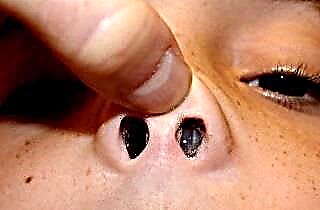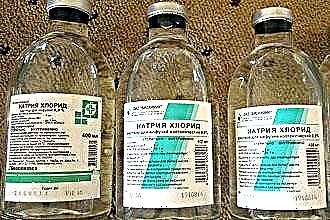Curantil is a non-nitrate vasodilator with a wide range of applications in medicine due to the mechanism of action and the presence of antiplatelet, angioprotective and antianginal effects, providing blood thinning and vascular protection. It can be used for angina pectoris to better enrich the myocardium with oxygen. Before use, you must read the description in the instructions and consult a doctor.
Instructions for use Curantila 25, 75
 Curantyl (Curantyl) - a drug often prescribed to patients with heart disease. Its main active ingredient is dipyridamole, a competitive inhibitor of the enzyme adenosine deaminase, which increases the level of adenosine and the production of prostacyclins from the arachidonic acid cycle. This is the antithrombotic effect, since platelet aggregation is inhibited, that is, the risk of the formation of blood clots, which can clog the vessels, with the subsequent development of acute coronary syndrome, including myocardial infarction, decreases. It also has a positive effect on coronary circulation and acts as an immunomodulator due to the fact that dipyridamole is a pyrimidine derivative and is able to potentiate the production of interferons, which increase resistance against viral infections.
Curantyl (Curantyl) - a drug often prescribed to patients with heart disease. Its main active ingredient is dipyridamole, a competitive inhibitor of the enzyme adenosine deaminase, which increases the level of adenosine and the production of prostacyclins from the arachidonic acid cycle. This is the antithrombotic effect, since platelet aggregation is inhibited, that is, the risk of the formation of blood clots, which can clog the vessels, with the subsequent development of acute coronary syndrome, including myocardial infarction, decreases. It also has a positive effect on coronary circulation and acts as an immunomodulator due to the fact that dipyridamole is a pyrimidine derivative and is able to potentiate the production of interferons, which increase resistance against viral infections.
Depending on the dose, Curantil has a different effect on the vessels: in small ones it expands the small-caliber arteries of the heart, brain, retina, kidneys, and in high ones, it reduces resistance in arterioles throughout the body, in addition, causing inhibition of the phosphodiesterase enzyme, which leads to an increase the level of cAMP and cGMP, which suppress the formation of blood clots. As a result of all this, blood pressure decreases. As the diameter of the vessels increases, the supply of nutrients and oxygen improves.
Effects of Curantil:
- Dipyridamole is used to dilate blood vessels in people with peripheral and coronary artery disease.
- It has been shown to reduce pulmonary hypertension without significantly lowering systemic blood pressure.
- The drug inhibits the formation of anti-inflammatory cytokines.
- Inhibits proliferation of smooth muscle cells and moderately increases the permeability of synthetic arteriovenous hemodialysis grafts.
- Increases the release of tissue plasminogen activator from cerebral vascular endothelial cells.
- It leads to an increase in 13-hydroxyoctadecadienoic acid and a decrease in 12-hydroxyethoxytetraenoic acid in the subendothelial matrix, which reduces thrombogenicity.
- Increases myocardial perfusion and left ventricular function in patients with ischemic cardiomyopathy.
- The drug leads to a decrease in the number of thrombin receptors and a special protein on platelets in patients with stroke.
- cAMP interferes with platelet aggregation and also causes relaxation of the arteriole walls. Long-term therapy did not show a significant decrease in systemic blood pressure.
- Inhibits replication of RNA-mangovirus [6].
- It can be used for stress testing the myocardium as an alternative to methods with physical exercise.
Based on all of the above characteristics, Curantil is indicated under the following conditions:
 DEP (discirculatory encephalopathy) - slowly progressive brain damage as a result of microangiopathy (damage to small vessels). Very often, the disease develops against the background of hypertension, atherosclerosis or other disorders;
DEP (discirculatory encephalopathy) - slowly progressive brain damage as a result of microangiopathy (damage to small vessels). Very often, the disease develops against the background of hypertension, atherosclerosis or other disorders;- Ischemic heart disease (ischemic heart disease). The drug is prescribed for the prevention of acute coronary syndromes;
- prevention of thromboembolism after prosthetic heart valves, shunts, cava filters, stents;
- prevention of influenza or acute respiratory viral infections (ARVI) in cardiac patients;
- HF (heart failure) of the initial stages in compensation;
- obliterating endoarteritis;
- The combination of dipyridamole and aspirin (acetylsalicylic acid / dipyridamole) is approved for secondary prevention of stroke.
In addition to drug use, it is also used in laboratories to inhibit cardiovirus in cell cultures.
Indications for use during pregnancy
- Prevention of intrauterine development disorders (placental insufficiency, malnutrition), respiratory distress syndrome, preeclampsia, eclampsia in women.
- Varicose veins of a pregnant woman in order to prevent thrombosis.
It should be noted that the appointment of Curantil during pregnancy is strictly individual and is performed only by a doctor with an assessment of the therapeutic effect and risks. The issue of taking during lactation is resolved separately.
 The drug is produced in the form of pills or tablets by Berlin-Chemie:
The drug is produced in the form of pills or tablets by Berlin-Chemie:
- Curantil 25 - dragee with dipyridamole at a dose of 25 mg (0.025 g) in 1 piece (100 dr. In 1 bottle);
- Curantil N (N) 25 - tablets of 25 mg of active ingredient (120 pieces in a bottle);
- Curantil N (N) 75 - tablets of 75 mg (0.075 g) of active ingredient (40 pieces in a glass bottle).
The tablets are covered with a protective yellow-green film and are in a transparent bottle packed in a cardboard box with instructions. In addition to the active ingredient, the tablets contain additional elements to maintain taste or consistency, it can be sucrose, dye, talc, macrogol, titanium dioxide, magnesium, wax.
Mode of application
The medicine is available in oral forms, that is, by mouth, preferably on an empty stomach, with 100-200 ml of water.
| Indication | Release form | Treatment regimen and dosage |
|---|---|---|
| Prevention of ARVI or during a flu epidemic | Curantil 25 | The daily dose is 0.05 g (2 tablets or others) once every 7 days for 4-5 weeks. |
| Recurrence of SARS or influenza | Curantil 25 | The daily dosage is 0.1 g (4 tablets or others) in 2 steps, 2 tablets each with an interval of 2 hours. The course is 8-10 weeks, once a week. |
| Ischemic heart disease and prevention of thrombosis | Curantil 75 | Three times a day, 1 tablet, every 8 hours (3-6 tablets per day). Maximum no more than 0.45 g per day (6 tablets or others) |
| To reduce platelet aggregation | Curantil 75 | 1-3 tab. or others per day (0.074-0.225 g). Take no more than 0.6 g per day (8 tablets) |
| During pregnancy | Individual appointments | Standard protocol: 0.025 g, three times a day. |
Side effects and contraindications
Contraindications:
 acute coronary syndromes: unstable angina pectoris, myocardial infarction (acute period);
acute coronary syndromes: unstable angina pectoris, myocardial infarction (acute period);- blood clotting disorder: hemorrhagic diathesis, vasculitis, hemophilia;
- HF in the stage of decompensation;
- collapse, hypotension;
- failure of the kidneys, liver;
- obstructive respiratory failure (including diseases of this genesis);
- complications of hypertension;
- children under 12 years old;
- hypersensitivity to components;
- severe arrhythmias;
- subvalvular stenosis;
Side effects appear against the background of improper administration of the drug, since therapeutic doses are often tolerated by patients normally.
Possible violations from the internal organs:
- The cardiovascular system. Tachycardia or vice versa, bradycardia, palpitations and hot flashes, fluctuations in blood pressure (BP) in the form of hypotension and a stealing symptom may appear.
Vasodilation occurs in healthy arteries, while stenotic arteries remain narrowed. This creates a "theft" phenomenon where the blood supply to the coronary artery is increased in dilated healthy vessels, which creates an inhomogeneous flow.
- Hemostasis system. Bleeding and increased bleeding against the background of a decrease in platelet activity, due to which thrombocytopenia (insufficient amount of elements in the blood) is possible.
- The gastrointestinal tract. Nausea or vomiting after taking the drug, diarrhea, abdominal pain.
- Other. Facial redness, congestion and tinnitus, headache. Sometimes arthritis, rhinitis, myalgia, allergic reactions in the form of a rash, urticaria occur.
In case of an overdose, angina pectoris, tachycardia, hypotension, dizziness, and general weakness often appear. In order to stop this condition, you can induce vomiting (if less than an hour has passed since taking the medicine), perform gastric lavage and use sorbents. In case of poisoning with Curantil, intravenous administration of its antidote, Aminophylline (0.5-1 g / min.) Is allowed. The antagonist is a compound of the bronchodilator theophylline with ethylenediamine. To stop an attack of concomitant overdose of angina pectoris, nitroglycerin is used.
Interoperability and compatibility
 Substances that inhibit the effect of dipyridomol: xanthine derivatives (including tea and coffee); antacids, which reduce the acidity in the stomach (for better absorption, the correct pH is needed).
Substances that inhibit the effect of dipyridomol: xanthine derivatives (including tea and coffee); antacids, which reduce the acidity in the stomach (for better absorption, the correct pH is needed).
Curantil potentiates the action of anticoagulants (Heparin, Warfarin) and other antithrombotic agents (Aspirin), which increases the risk of bleeding while taking medications.
While using the drug, alcohol and any alcoholic beverages are prohibited.
It can be combined with other heart medications such as statins.
Before starting the appointment, it is necessary to warn the doctor about possible allergic reactions, about taking other drugs, especially aspirin, vitamins, inform about pressure fluctuations, alcoholism, planning or possible pregnancy.
Before surgery or dental intervention, it is necessary to warn the surgeon about the use of Curantil in order to avoid unpleasant consequences.
Analogues of the drug: what can be replaced?
There are absolute analogues of Russian-made Kurantil. This means that both drugs have the same active ingredient. The domestic generic is even called “Dipyridamole”. The difference between them is in the features and place of production, additional components and price, since the Russian product is cheaper than the imported one. Other medicines with Dipyridamole: Persantin (Spain), Parsedil, Sanomil-Sanovel.
In case of intolerance to Curantil, it is recommended to raise the question of taking other drugs with an antiplatelet effect:
 Based on acetylsalicylic acid: Aspikor, Aspirin cardio, Aspecard. Since drugs of this group, by blocking the synthesis of thromboxane A2, have an ulcerogenic effect (potentiation of the development of stomach ulcers), they are not recommended for patients with gastritis or peptic ulcer disease, and for the elderly, or patients at risk of complications, it is preferable to use drugs with magnesium ( Cardiomagnet, Magnikor).
Based on acetylsalicylic acid: Aspikor, Aspirin cardio, Aspecard. Since drugs of this group, by blocking the synthesis of thromboxane A2, have an ulcerogenic effect (potentiation of the development of stomach ulcers), they are not recommended for patients with gastritis or peptic ulcer disease, and for the elderly, or patients at risk of complications, it is preferable to use drugs with magnesium ( Cardiomagnet, Magnikor).- Based on Clopidogrel: Zylt, Plagril, Trombonet. Egithrombus, Plavix. The mechanism of action of the substance consists in the binding of ADP (adenosine diphosphate) to the platelet surface and its subsequent activation by the GPIIb / IIIa complex, as a result of which the aggregation of blood cells decreases.
- Other substitutes: Disgren (1 capsule contains 0.3 g of Triflusal, an inhibitor of platelet cyclooxygenase from the arachidonic acid cycle); Brilinta (Ticagrelor and Mannitol).
Conclusions
Curantil is a drug based on Dipyridamole, which inhibits the formation of a blood clot with prolonged use and causes vasodilation at high doses for a short course. Serious side effects can occur if used improperly. The drug is prescribed to pregnant women with the aim of preventing or treating the pathology of the fetus and the expectant mother. There are available analogs with the same active ingredient, as well as drugs with a similar effect with a different mechanism of action. To prescribe a medication, you need to consult a cardiologist.

 DEP (discirculatory encephalopathy) - slowly progressive brain damage as a result of microangiopathy (damage to small vessels). Very often, the disease develops against the background of hypertension, atherosclerosis or other disorders;
DEP (discirculatory encephalopathy) - slowly progressive brain damage as a result of microangiopathy (damage to small vessels). Very often, the disease develops against the background of hypertension, atherosclerosis or other disorders; acute coronary syndromes: unstable angina pectoris, myocardial infarction (acute period);
acute coronary syndromes: unstable angina pectoris, myocardial infarction (acute period); Based on acetylsalicylic acid: Aspikor, Aspirin cardio, Aspecard. Since drugs of this group, by blocking the synthesis of thromboxane A2, have an ulcerogenic effect (potentiation of the development of stomach ulcers), they are not recommended for patients with gastritis or peptic ulcer disease, and for the elderly, or patients at risk of complications, it is preferable to use drugs with magnesium ( Cardiomagnet, Magnikor).
Based on acetylsalicylic acid: Aspikor, Aspirin cardio, Aspecard. Since drugs of this group, by blocking the synthesis of thromboxane A2, have an ulcerogenic effect (potentiation of the development of stomach ulcers), they are not recommended for patients with gastritis or peptic ulcer disease, and for the elderly, or patients at risk of complications, it is preferable to use drugs with magnesium ( Cardiomagnet, Magnikor).

